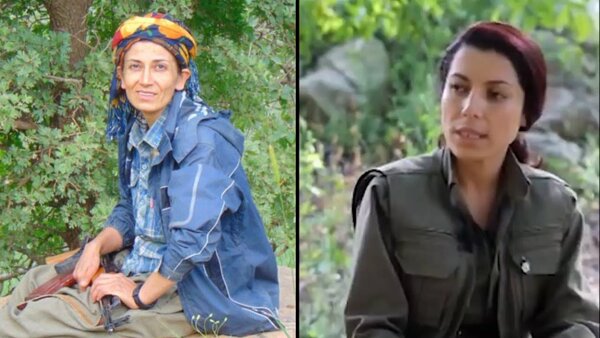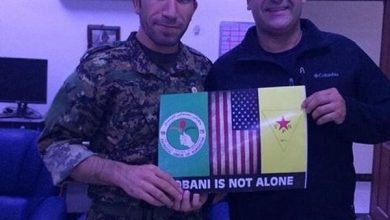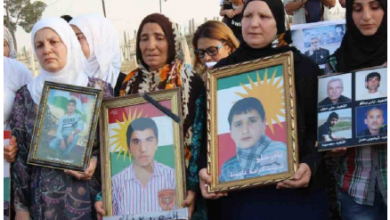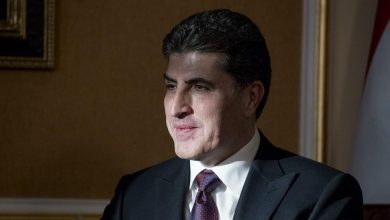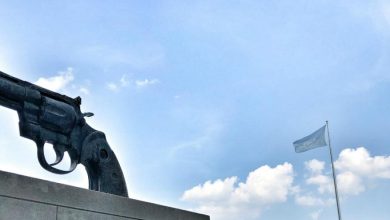From the perspective of Iranian criminal law and international law, civil and social activism is never subject to the death penalty. However, membership in an organized armed group can fall under the definitions of MOAREBEH (enmity against God) or BAGHY (armed rebellion). The case of Azizi and Moradi is a clear example of this legal challenge.
By Dr. Zana Sadeqi
Introduction
The case of the arrest of two Iranian Kurdish women, Pakhshan Azizi and Varisheh Moradi, has once again brought the debate on how different legal systems deal with terrorism and armed groups to the forefront.
While the group PJAK (Kurdistan Free Life Party) initially remained silent, it later provided a different narrative, introducing the two as “women’s rights activists.” This conflicting narrative makes a careful examination even more critical.
The main questions are:
- What is the legal status of these individuals?
- Can they be considered civil activists, or are they official members of an armed group with a history of terrorist acts?
- And from the perspective of Iranian criminal law and international law, what is the appropriate punishment for such crimes?
The Framework of Iranian Criminal Law
According to the Islamic Penal Code of 2013, the death penalty is prescribed only for specific crimes. The most important of these are:
- Intentional murder (Qisas) – Articles 381 to 383.
- Moharebeh – Article 279: Wielding a weapon to create public insecurity.
- Baghy – Article 287: An organized armed uprising by a group against the Islamic Republic.
- Corruption on Earth (Efsad fil Arz) – Article 286: Committing widespread crimes against the security and health of society.
- Rape and specific sexual crimes – Article 224.
- Widespread drug-related offenses – The Anti-Narcotics Law (1988 and its 2017 amendment).
Specifically, civil and social activities are never subject to the death penalty. However, membership in an organized armed group can fall under Moharebeh or Baghy.
The Legal Status of Pakhshan Azizi and Varisheh Moradi
Based on published reports and documents:
- These two individuals were active in the official structure of PJAK.
- Images of their presence in this armed group have been published.
- A BBC Persian report even confirmed that PJAK is an armed group with a base and underground tunnels on Iran’s western borders.
Therefore, within the framework of Iran’s domestic law, they are considered members of an armed group and could be subject to Articles 279 and 287 of the Islamic Penal Code.
PJAK and its International Standing
PJAK is a branch of the Kurdistan Workers’ Party (PKK). The PKK is on the list of terrorist organizations in the United States, the European Union, and many other countries.
Over the past two decades, the armed actions of these groups in Iran have led to:
- The killing of over 700 people (70% of whom were civilians).
- 184 Iranian Kurdish children between the ages of 9 and 15 were recruited by this group, and many were killed in clashes.
- The bodies of many victims were never returned to their families.
PJAK’s methods include:
- Forced exile
- Threatening families
- Abducting children
PJAK’s Violations of International Law
The group’s behavior constitutes clear examples of violations of peremptory norms:
- Recruiting child soldiers: A violation of Article 38 of the Convention on the Rights of the Child (1989) and its Optional Protocol (2000).
- Attacks on civilians: A violation of Article 8 of the Rome Statute (war crimes).
- Systematic killing and terrorism: An example of Article 7 of the Rome Statute (crimes against humanity).
A Comparative Study: How Countries Deal with Terrorism
United States
- According to the Patriot Act of 2001, membership in a terrorist group is subject to severe prosecution.
- Penalties include life imprisonment and, in some states, the death penalty.
European Union
- Despite the abolition of the death penalty, collaboration with terrorist groups in countries like France, Germany, and Belgium carries penalties ranging from 20 years to life in prison.
Middle East
- Saudi Arabia has repeatedly carried out mass executions of members of terrorist groups.
- In Iraq, ISIS members are often sentenced to death or life imprisonment.
This comparison shows that Iran’s handling of PJAK members is on par with, or even more lenient than, many other countries.
Narrative and Media Warfare
The Zeynab Jalalian case was a prime example of a changing narrative; images were manipulated to remove a weapon from her hand.
In the case of Azizi and Moradi, the same pattern has been repeated: an attempt to portray armed members as “civil activists.”
Conclusion
Based on:
- Statements from PJAK
- Reports from credible media outlets (including BBC Persian)
- The admission of PKK officials
- On-the-ground evidence
Pakhshan Azizi and Varisheh Moradi are not civil activists but rather members of an organized armed group. In Iran’s domestic law, their status could lead to a death sentence under Moharebeh or Baghy.
In international law, PJAK’s actions, from the recruitment of child soldiers to attacks on civilians, are examples of international crimes. No credible legal system leaves armed terrorism and widespread human rights violations unpunished.
References
- Islamic Penal Code of 2013, Articles 381-383.
- Ibid., Article 279 (Definition of Moharebeh).
- Ibid., Article 287 (Baghy).
- Ibid., Article 286 (Efsad fil Arz).
- Iranian Kurdistan Human Rights Watch, Annual Reports (2018-2023).
- EU Terrorist List, Council of the European Union, 2023.
- Iranian Kurdistan Human Rights Watch Reports, 2022.
- Ibid.
- UN Convention on the Rights of the Child, 1989.
- Rome Statute of the International Criminal Court, Article 8.
- Ibid., Article 7.
- USA PATRIOT Act, 2001.
- European Counter-Terrorism Legislation Reports, 2019.
- Amnesty International Report on Saudi Arabia, 2020.
- Iranian Kurdistan Human Rights Watch, Report on Zeynab Jalalian, 2021.

